After Boris Johnson’s historic defeat, what comes next?
Boris Johnson loses control of parliament in the first vote he’s faced since becoming PM.
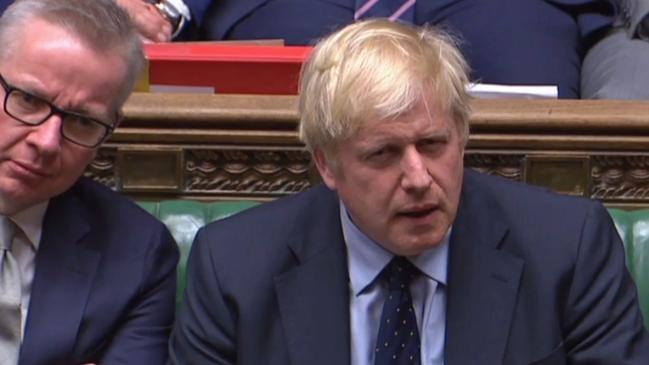
Boris Johnson has lost control of parliament after losing the first vote he has faced since becoming PM.
Tory rebels joined with a coalition of opposition parties to take command of the Commons agenda to push through legislation aimed at stopping a no-deal Brexit. Mr Johnson immediately said he would table a motion for an early election. So what happens now?
What just happened?
Rebel Conservative MPs joined forces with Labour and other opposition parties to seize control of the House of Commons agenda from the government.
Twenty-one Tory MPs, including some former ministers, defied threats of having the whip withdrawn and being banned from standing as Conservatives at the next general election to vote against the government.
The majority was 27.
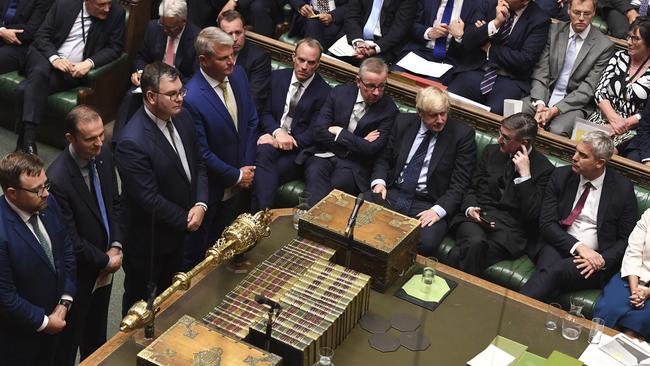
Does this mean that parliament has now ruled out a no-deal Brexit on October 31?
No. This is just the start of a process that will continue throughout this week. Wednesday’s (AEST) vote means backbench MPs now control the agenda of the House of Commons and will bring forward a bill on Thursday (AEST) that would force Boris Johnson to request a three-month Brexit extension if he had failed to negotiate a new deal by October 19.
The bill will have to pass both the House of Commons and the House of Lords by Monday when parliament will be prorogued until a Queen’s Speech to be held on October 14.
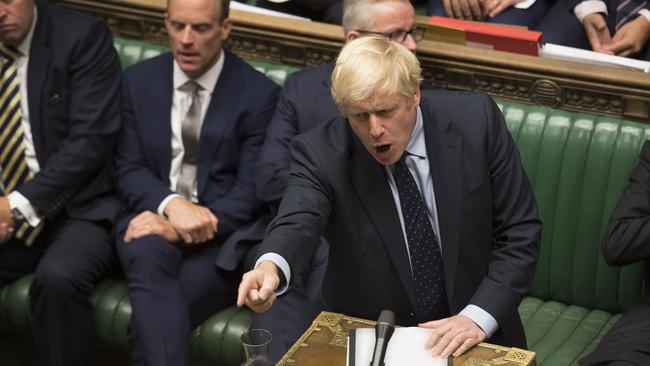
Will the bill pass in time?
It is likely that it will, but it is not a foregone conclusion. To begin with, the coalition that defeated the government on Tuesday will have to remain intact and the bill will also have to go through the House of Lords, where Brexiteer peers will attempt to delay its passage.
The prime minister has also announced that in light of Tuesday’s vote he will seek a general election in an attempt to win an absolute majority in favour of his Brexit policy. That election would take place on October 14. If MPs voted for that election before the extension bill had made it on to the statute book then the bill would fall.
Can the government refuse to give the bill royal assent?
Perhaps, but it will be highly controversial. Royal assent is when the Queen formally agrees to turn a bill that has cleared both houses of parliament into law. There is no set time period between parliament finishing its work and the Queen signing it into law.
While the government cannot refuse to do this outright, it can hold out until after prorogation takes place next week, at which point all bills without royal assent fall. One former parliamentary lawyer told The Times there was nothing that could prevent the government delaying in that way, although they added that it would amount to “constitutional dynamite”.
The source said: “It is so subversive of every constitutional norm. It would be incredibly irresponsible.”
But they pointed out that in normal times the government would usually wait until it had several bills needing royal assent before “bothering the Queen” for her formal approval. However, the source knew of occasions when royal assent had been granted “within an hour” of both houses of parliament passing a bill.
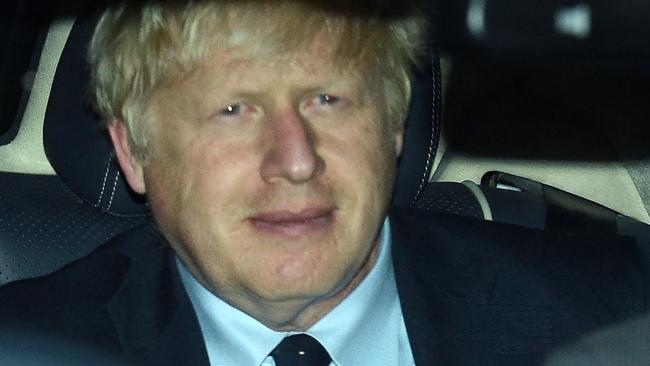
Will MPs vote for an election?
Under the Fixed-term Parliaments Act 2011 (FTPA) Mr Johnson will need two thirds of all 650 MPs in the Commons to vote in favour of holding an early election. Abstentions will not count. Jeremy Corbyn has pledged — at a meeting of opposition party leaders on Tuesday that Labour would not vote for an election until the Brexit extension bill has been passed into law. At that point Labour will support an election. As of now it appears that Labour will back an early election as long as it is assured that it will definitely take place on October 14.
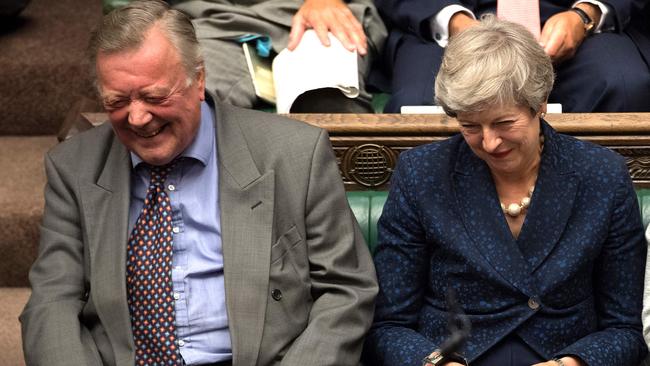
Who decides the date?
The prime minister has the sole power to advise the Queen on what date to proclaim. That is why Labour is looking at options for writing into law that this particular election must be on October 14 and cannot be moved by proclamation after MPs have voted to hold an early election in principle.
Is there any way the government can call an election without requiring two thirds of MPs to support it?
Yes, but it will be complicated. The government can propose a one-line bill along the lines of “notwithstanding the provisions of the fixed-term parliaments act, there will be a general election on October 14”. But in a scenario where Labour opposes Mr Johnson’s early election plan it is possible the government will struggle even to attain a simple majority. Moreover, unlike a resolution to call an election under the FTPA, a bill of this type will need to pass through the House of Lords — and all before prorogation next Monday. If the government proposes such a bill but cannot be sure of passing it in time for prorogation it might be forced to send another delegation of privy counsellors to the Queen asking that she rescind last week’s controversial prorogation order to give them more time.
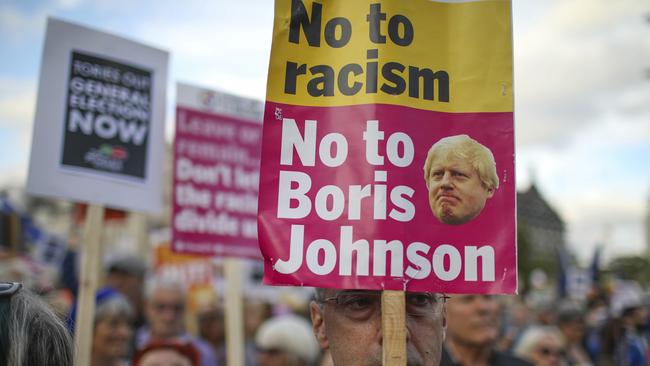
If a general election is called, when does the Commons stop sitting?
Under the FTPA, parliament must be dissolved 25 working days before a general election. If the election is on October 14, then dissolution will be next Monday, September 9. It is worth noting quite how time-pressed parties will be to get their acts together. Nomination papers must be delivered on the sixth working day after the date of dissolution — by Monday, September 16. Labour will have to hold a “Clause V” meeting to determine its manifesto. If there is to be one last flare-up of the party’s divisions on Brexit policy before the election it could come then. The tight timetable is likely to prove controversial too for candidate selection with both parties imposing ultra-loyal activists in winnable seats without local parties having much input.
What options are left for Boris Johnson if the extension bill passes but he cannot get a general election?
The prime minister will be stuck in a horrible bind, at least partly of his own making. He will be compelled in law to seek an extension to the Article 50 negotiating window in late October if he has not secured a deal first. But he insists there is no chance of the EU offering a deal of the sort he desires unless the threat of a no-deal Brexit persists right up to the wire.
One option, technically at least, will be for the prime minister to decide that since his negotiating tactics have been frustrated, and then his (apparently reluctant) desire for a general election thwarted too, a referendum is the only choice left.
But the length of time required first to legislate for and then hold a referendum will mean a Brexit delay well beyond October 31, and possibly even the January 31 2020 date at present envisaged by the anti-no-deal caucus in the Commons.
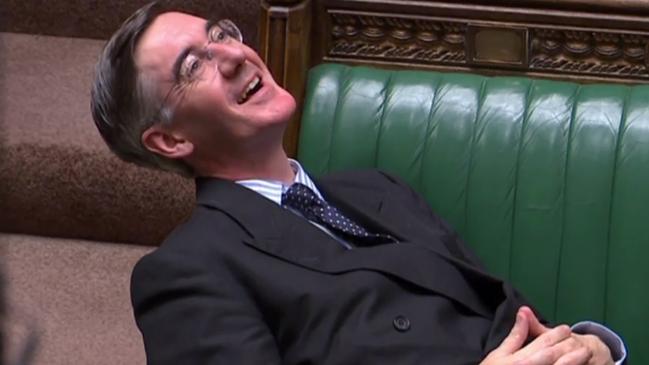
What happens now?
On Wednesday morning (AEST) MPs voted to take control of the parliamentary agenda and tabled a bill to delay Brexit by three months if no deal is agreed. The prime minister responded by saying that he would table a motion for a general election. He has said that there are no circumstances in which he would go to Brussels and seek a delay — instead, he would rather go to the polls.
On Thursday (AEST) therefore, rebel MPs face a choice between voting down an election and pushing through their bill, or triggering one in the hope that Boris Johnson will lose to a party leader who is willing to delay Brexit beyond October 31.
What happens partly depends on whether MPs can find a way to ensure that the election takes place before the European Council meets on October 17. Labour is hopeful that this is possible, and may put forward measures designed to enshrine this in law. MPs may decide instead to push through with the legislation to avoid crashing out on October 31. If they choose this course, MPs will vote on the bill at about 5pm local time (2am AEST) and again at about 7pm (4am). It could be voted down at any stage if the government picks off enough rebels.
If the bill is passed by MPs, it will go for consideration by the House of Lords on Friday morning or even on Thursday.
The Times.



To join the conversation, please log in. Don't have an account? Register
Join the conversation, you are commenting as Logout